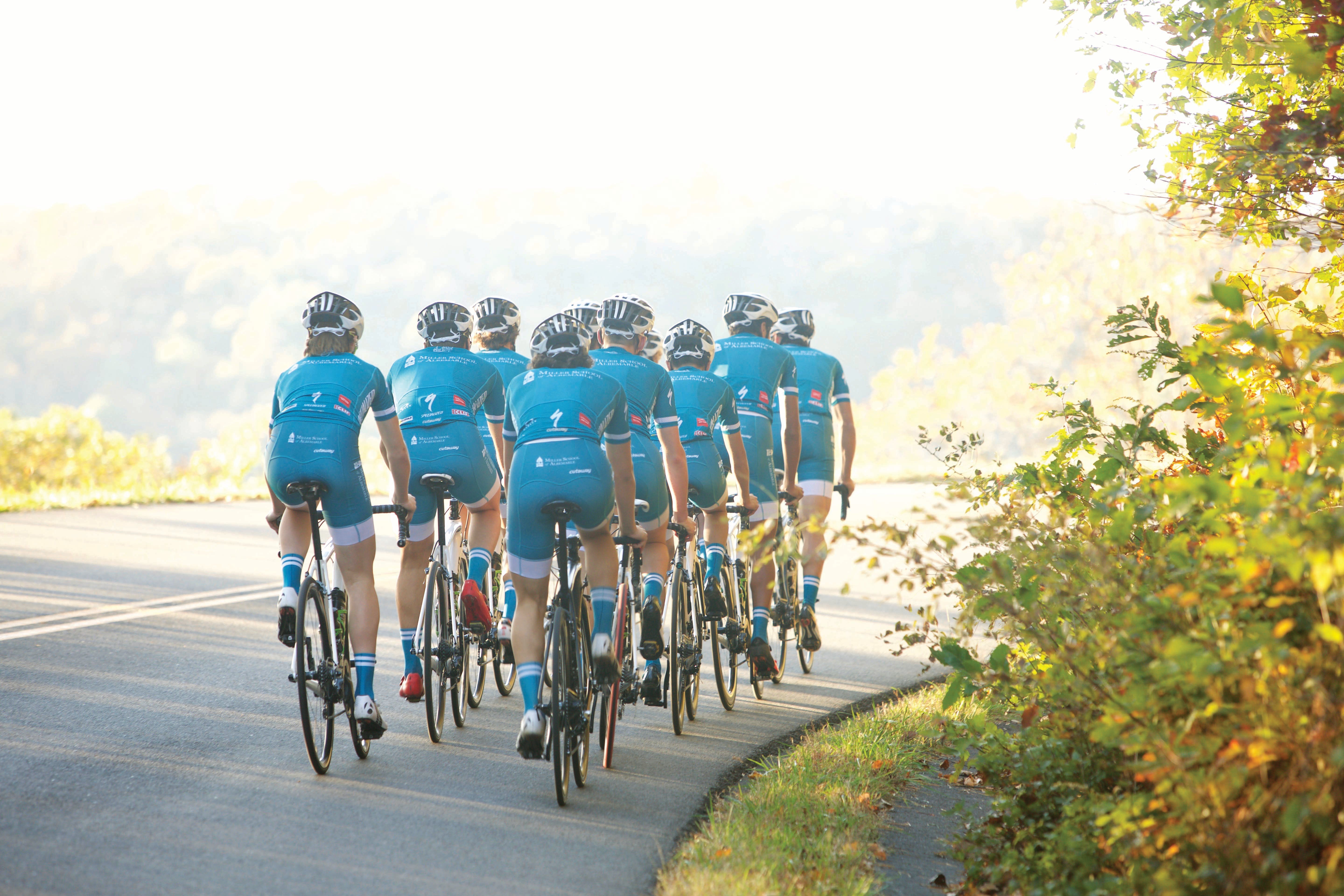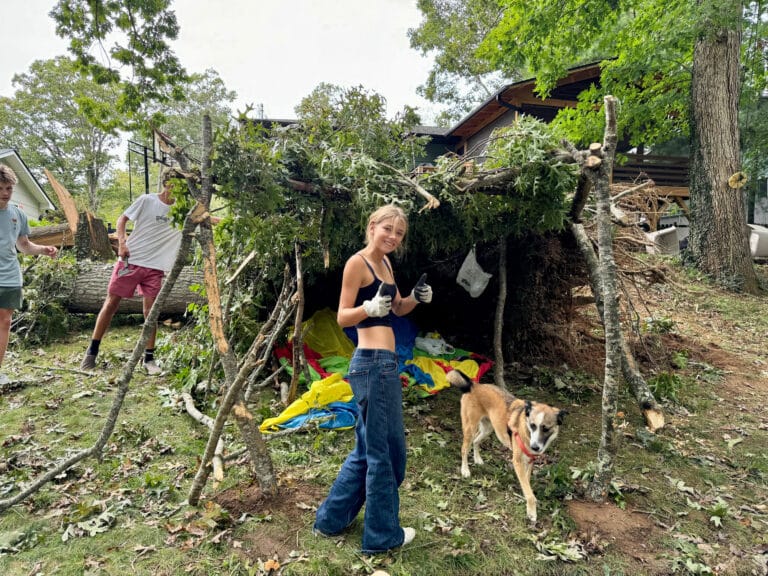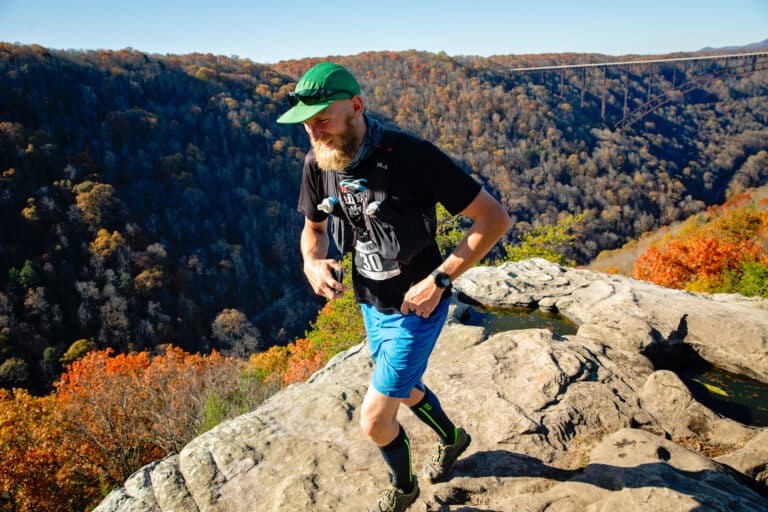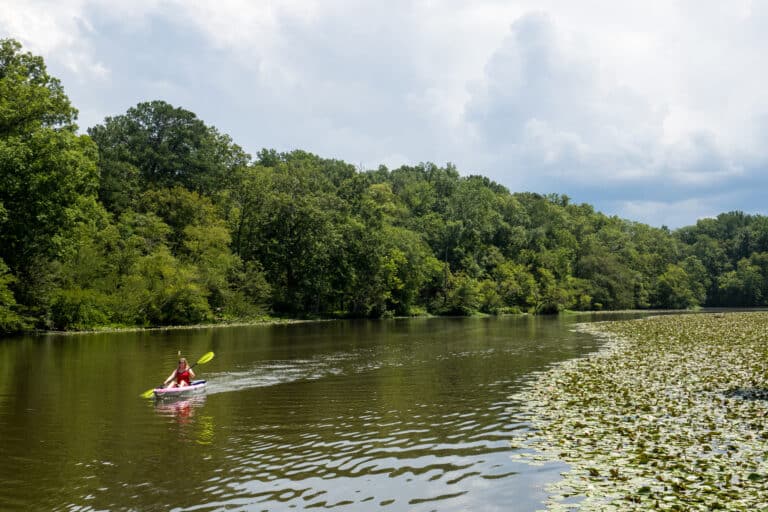High school biking has officially gone mainstream. The National Interscholastic Cycling Association formed in 2009, and it has quickly expanded to 19 leagues in 18 states—including North Carolina, Virginia, Alabama, and Pennsylvania.
“We expect participation in 2017 will include over 12,000 student-athletes and more than 4,000 coaches, with a number of new leagues also joining us,” says the organization’s president Austin McInerny.
Virginia is particularly well represented. The Commonwealth boasts 25 teams, 14 of which are school-affiliated. Many of the teams are affiliated with private schools, but Andrea Dvorak, director of NICA’s Virginia High School League, is working to bring mountain biking to more public schools. “Once we get around eight riders from a specific school district, I can go to the athletic director and explain that NICA will cover the insurance, provide pre-screened certified coaches, schedule competitions—pretty much everything needed to start a program.”
In Charlottesville, three public schools—Monticello High School, Charlottesville City High School, and Western Albemarle High School—will begin fielding teams this fall. “Monticello High School came on board early,” says Dvorak. “And due to their success, we’ve been able to use them as a sort of pilot program for the other public schools.”
One of the country’s most established and successful high school mountain bike squads is at The Miller School of Albemarle, a private boarding school located in Crozet, Va. The Miller School won the 2016 VHSL state mountain biking championship and is the country’s only school-based program to be recognized as an official “Center of Excellence” by USA Cycling.
Training runs year-round and is crucial to the team’s success. “In an endurance sport like mountain biking, offseason training is the most important piece of the puzzle for making improvement,” says head coach Andy Guptill. “Varsity riders are on the bike between two and five hours a day, and in the weight room before classes several mornings each week. Once the season begins, we’re traveling and racing so often that time for constructive training blocks is very limited, so you have to go into the season firing on all cylinders.”
The team travels all over the East Coast competing against the country’s top junior bikers. In January, the school’s star rider, Laurent Gervais, signed with the Aevolo Cycling Team, a prominent Under-23 squad in the Union Cycliste Internationale.
Interscholastic mountain biking is taking root in North Carolina, too. This spring is the North Carolina league’s first official season, and they’re setting NICA records for participation. With seven leagues and more in the works, Dvorak says discussions about a regional East Coast tournament have already begun. “We think this is the first step in founding a national interscholastic championship series.
Nashville’s Dan Furbish Takes a DIY Approach
High school mountain biking is dominated by private schools with deep pockets and big budgets, but in Nashville, Tennessee, a group of international high school students got their start racing in hoodies and jeans on self-made bikes. Led by NICA certified coach Dan Furbish, the Nashville International High School Mountain Bike Team—or, as Furbish lovingly calls them, the Bad News Bears—is the result of a partnership between the Oasis community center, Humana, and Halcyon Bike Shop.
“[The team] basically started in 2009 as a summer experiment,” said Furbish who, at that time, was working as a counselor for troubled students. “I thought to myself, ‘What if I asked people for a bunch of donated bike parts and then taught kids to put them together?’”
The idea quickly blossomed into a full-fledged program supported by sponsors. By providing urban kids with parts and guidance, and helping them build their own bikes, Furbish could give them a means of exercising, a community to participate in, a way to stay out of trouble, and provide them with sustainable and self-reliant transportation. Since its inception eight years ago, over 400 youths have completed the program.
The racing team grew out of the program in 2015, when a handful of participants asked Furbish to help them create a competitive squad. “We worked with sponsors to get them uniforms and it was kind of like, ‘Well, here’s the starting line, let’s go see what we can do!’” Just a few years ago, many of them had never ridden a bike. Now they are lining up to race.








